Where are the dinosaurs this summer? Online, of course.
They’re hanging out in an online course that fills Tier 2 Natural Sciences requirements.
GEOL 1400 Dinosaurs and the Mesozoic (2NS)
This online course includes a general introduction to dinosaurs including their classification, anatomy, physiology, and behavior. Three major groups of dinosaurs will be discussed in detail, the Ornithischia, Sauropoda, and Therapoda in addition to other major components of Mesozoic ecosystems including marine reptiles, pterosaurs, mammals, insects, and plants. The course concludes with an overview of the evolution of terrestrial and marine ecosystems during the Mesozoic and the causes and effects of the end Cretaceous mass extinction. The online course is taught by Dr. Dan Hembree, Associate Professor of Geological Sciences, and is part of the Knowing the Future theme.
More Online Courses that Fill Tier 2
AAS 1100 Introduction to African American Literature (2HL)
This online course focuses broadly on African American literature from the 18th century to contemporary writings. With readings from poetry, short fiction, the novel, and other forms of writing, the course explores how black writers address African American literary inheritance and production. Taught by Dr. Gary Holcomb, Professor of African American Literature, this course is part of the Wealth and Poverty theme.
AAS 1500 Africana Media Studies (2HL)
This online course is an introduction to the Africana experience (primarily in the United States) through media enables students to explore, critique and understand images, stereotypes, myths and counter-imaging of the Africana experience. Contemporary as well as historic notions of race, class and gender through the prism of media are examined. This course is taught by Dr. Akil Houston, Assistant Professor of Cultural and Media Studies.
AAS 2100 Slave Narrative and Freeman/Freewoman Fiction of the 18th and 19th Centuries (2HL)
This online course covers the African American slave narrative, from the 18th to the 19th centuries, along with free-woman and free-man writings of the later 19th century and early 20th century. Readings typically include works by such authors as Frederick Douglass, Harriet Jacobs, William Wells Brown, and Solomon Northup. Taught by Holcomb, this course is part of the Becoming Human theme.
BIOS 1030 Human Biology I: Basic Principles (2NS)
This online course for non-majors covers humans as biological organisms: our origins, ecology, and inheritance, and functioning of our body systems. Taught by Karen Mammone, Biological Sciences Instructor, this course is part of the Food Studies theme, the Becoming Human theme, and the Making and Breaking the Law theme. It is also taught on the Athens campus by Dr. Scoot Moody, Professor Emeritus.
BIOS 2060 Drugs and the Brain (2NS)
This online course is for non-majors. The brain creates behavior in part via multiple chemical messenger (neurotransmitter) systems that serve specific functions such as mood alteration and arousal. Recreational and psychoactive medical drugs work by mimicking these natural messenger systems. This course reviews nervous system structure and chemical signaling pathways and surveys the major classes of psychoactive drugs, including alcohol, opium, cocaine, amphetamines, nicotine, caffeine, marijuana, the hallucinogens, and the antidepressants. Taught by Dr. Daewoo Lee, his course if part of the Making and Breaking the Law theme.
BIOS 2200 Conservation and Biodiversity (2AS)
This online course is for non-majors. It features the modern field of conservation biology and the role of genetics, ecology, life history, and biogeography in the preservation and maintenance of biodiversity. Case studies of endangered animal and plant species are highlighted. Taught by Molly Gurien, Biological Sciences Instructor, this course is part of the Ohio: Sense of Place theme, the Sustainability Studies theme, and the Making and Breaking the Law theme.
BIOS 2210 Microbes and Humans (2AS)
This online course for non-majors is a good introduction to microbiology for allied health fields. It features the history and life of microorganisms with an emphasis on bacteria and viruses, with an overview of infectious diseases affecting human organ systems. Taught by Stephanie Miller, a visiting faculty member in Biological Sciences, this course is part of the Making and Breaking the Law theme.
GEOG 1310 Globalization and the Developing World (2CP)
This online course is a survey of globalization and its impact on development, international relations, environment and culture in developing countries around the world. Taught by Dr. Edna Wangui, Associate Professor of Geography, this is part of the Sustainability Studies curricular theme and the Wealth and Poverty theme.
GEOL 2210 Earth and Life History (2NS)
 This online course explores the 4.5 billion-year history of the interaction between life and the environment. Topics include the origin of the Earth, the origin and development of life, the origin and evolution of the continents, the history of the atmosphere and ocean, catastrophic extinctions, and the impact of human evolution. The course is taught by Dr. Alicia Stigall, Associate Professor of Geological Sciences. The course is part of the Ohio: Sense of Place theme, the Knowing the Future theme, and the Becoming Human theme.
This online course explores the 4.5 billion-year history of the interaction between life and the environment. Topics include the origin of the Earth, the origin and development of life, the origin and evolution of the continents, the history of the atmosphere and ocean, catastrophic extinctions, and the impact of human evolution. The course is taught by Dr. Alicia Stigall, Associate Professor of Geological Sciences. The course is part of the Ohio: Sense of Place theme, the Knowing the Future theme, and the Becoming Human theme.
GEOL 2310 Water and Pollution (2AS)
This online course examines the interrelationship between geologic and hydrologic principles and technology as they relate to the use of water resources and the environmental problems associated with its pollution. Sections are taught by Dr. Dina Lopez, Professor and Chair of Geological Sciences, and Dr. Eung Seok Lee, Associate Professor of Geological Sciences. It is part of the Sustainability Studies curricular theme, the Fire to iPhone theme, the Wealth and Poverty theme.
GEOG 1310 Globalization and the Developing World (2CP)
This online course is a survey of globalization and its impact on development, international relations, environment and culture in developing countries around the world. Taught by Dr. Edna Wangui, Associate Professor of Geography, this is part of the Sustainability Studies curricular theme and the Wealth and Poverty theme.
GEOG 2680 Introduction to GIS and Mapping Sciences (2AS)
This online course includes an introduction to an overview of geographic information science and the application of the mapping sciences of GIS, remote sensing, and cartography. Taught by Dr. Gaurav Sinha, Associate Professor of Geography, the course is part of the Fire to iPhone theme, the Wealth and Poverty theme, and the War and Peace theme.
HIST 1220 Western Civilization: Modernity from 1500 (2HL)
This online course includes the Renaissance; the religious Reformations of the 16th century; absolutism, constitutional monarchy, and enlightened despotism; the Scientific Revolution and the Enlightenment; the American and French Revolutions; industrialization and nation building; modernism; imperialism and the World Wars; and the rise and fall of totalitarian regimes in the 20th century. It is taught by Dr. David Curp, Associate Professor of History.
HIST 1330 Introduction to World History Since 1750 (2CP)
This online course introduces cross-cultural perspectives in world history, focusing on the major themes in human development, such as the rise of nationalism, modernization, and westernization, in order to understand the nature of global and cultural interaction in the modern era. It is taught by Dr. Assan Sarr, Assistant Professor of History. This course is also offered on the Athens campus, taught by Adam Givens.
HIST 2460 The Rise of Modern Asia (2CP)
This online course surveys the history of Asia from the early modern era to the present day, with emphasis on the rise of modern nationalism, economic development, and social and cultural achievements. It is taught by Dr. Joshua Hill, Assistant Professor of History.
ITAL 1110 Elementary Italian I (2CP)
This online course is the beginning course in a sequence. It is taught by Carmelinda Chilelli and Francesca Colloredo. Italian can be used for the Arts & Sciences foreign language requirement.
ITAL 1120 Elementary Italian II (2CP)
This online course is the second course in a sequence. It is taught by Carmelinda Chilelli and Francesca Colloredo. Italian can be used for the Arts & Sciences foreign language requirement.
LAT 1110 Beginning Latin I (2CP)
This online course is the first of a sequence that introduce the fundamentals of Latin grammar, syntax, and morphology, with emphasis on reading continuous passages of Latin prose written by or adapted from ancient authors. The course is taught by Dr. James Andrews, Associate Professor of Classics & World Religions, and Dr. Neil Bernstein, Professor of Classics & World Religions. Latin can be used for the Arts & Sciences foreign language requirement.
LAT 1120 Beginning Latin II (2CP)
This online course is the second in a sequence that introduces the fundamentals of Latin grammar, syntax, and morphology. It is also taught by Andres and Bernstein.
PBIO 1030 Plants & People (2AS)
This online course examines the interrelationships of plants and humans from both historical and modern points of view, origins of agriculture and civilization, tropical and temperate food plants, medicinal plants, drug plants, destruction of environment, and its ultimate effect on food plants. Taught by Dr. Sarah Wyatt, Professor of Environmental & Plant Biology, this course is part of the Food Studies theme, the Sustainability Studies theme, the Wealth and Poverty theme, and the Becoming Human theme.
PBIO 1090 Americans and Their Forests: Ecology, Conservation and History (2NS)
This online course provides an understanding of modern forests encompassing both recent and long-term effects arising from natural and human causes. The pattern and character of forest utilization are interpreted in terms of varied cultural experiences in different regions and times. Taught by Dr. Glenn Matlack, Associate Professor of Environmental & Plant Biology, this course is part of the Ohio: Sense of Place theme, the Knowing the Future theme, the Sustainability Studies theme, the Making and Breaking the Law theme, and the Becoming Human theme, and the Fire to iPhone theme.
PBIO 2470 Biomes of the World (2NS)
This online course couples a broad characterization of each ecosystem globally with details on representative protected areas for each biome in North America. Conservation issues, human impacts, and products for human use, are discussed throughout the course. Taught by Dr. Harvey Ballard, Associate Professor of Environmental & Plant Biology, this course is part of the Wealth and Poverty theme.
PSY 1010 General Psychology (2SS)
This online course introduces experimental and clinical psychology including physiological bases of behavior, sensation, perception, learning, memory, human development, social processes, personality, and abnormal behavior. The online section is taught by Dr. Mark Alicke, Professor of Psychology. Sections on the Athens campus are taught by Dr. Keith Markman, Associate Professsor, and Dr. Michael Grant, Assistant Professor. This course is part of the War and Peace theme and the Becoming Human theme.


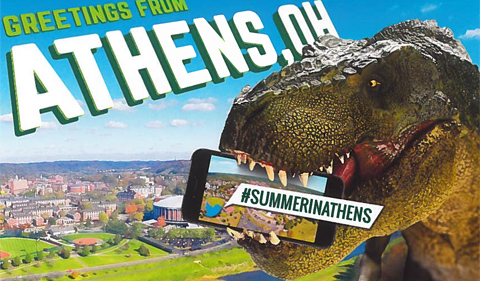


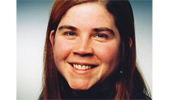


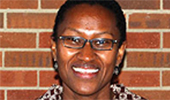

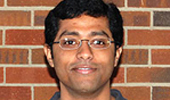

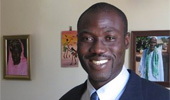
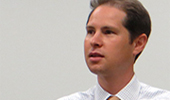
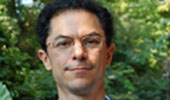
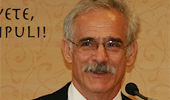

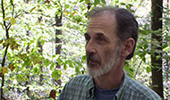
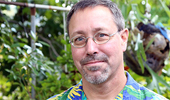


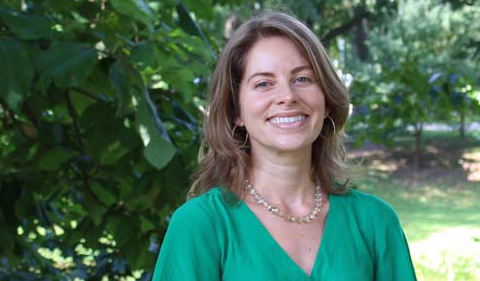















Comments